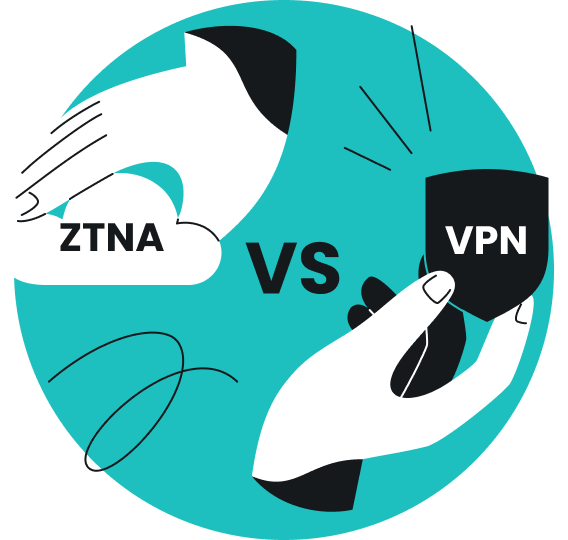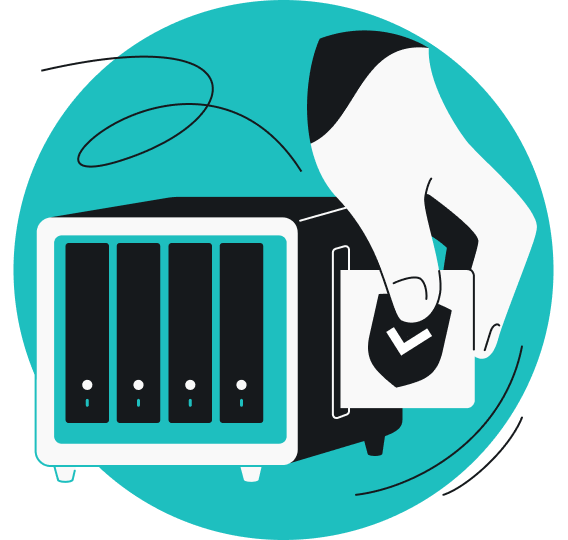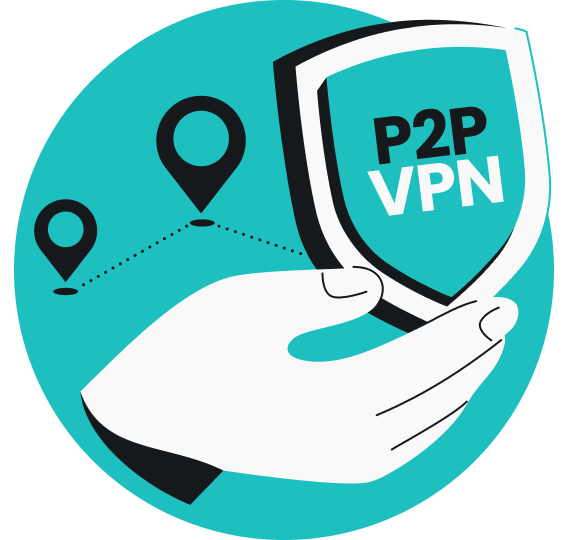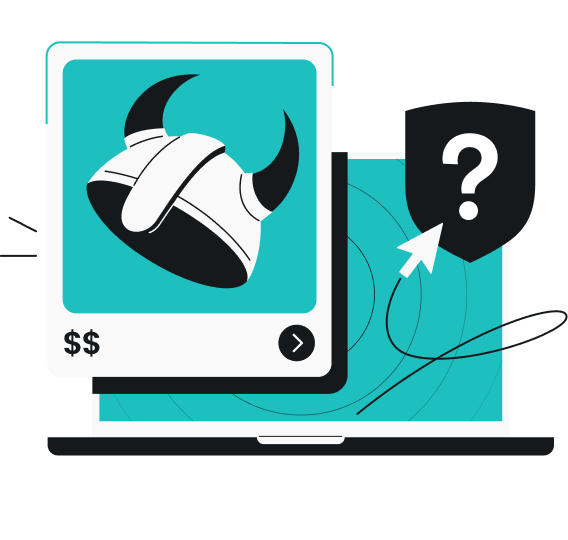With your privacy and security online at stake, choosing a VPN (Virtual Private Network) provider may be one of the most important cybersecurity decisions you’ll have to make. But with so many VPNs on the market, how do you know which one is right for you? Let me help you.
In this guide, I’ll review Surfshark and PureVPN by taking a close look at their features, speed, privacy settings, pricing, and more. Let’s see which VPN best suits your needs.
Note: The comparison was made in October 2024.
Surfshark vs. PureVPN: at a glance
A little PSA: this comparison guide will be very detailed and long, as there are many important details to look at.
So, if you’re short on time, here’s a quick summary of the most important VPN features and how Surfshark and PureVPN compare.
| Surfshark | PureVPN | |
|---|---|---|
| Simultaneously connected devices | Unlimited | 10 |
| Server countries | 4,500 | 65+ |
| Servers | 100+ | 6,000+ |
| RAM-only servers | ||
| Protocols | WireGuard, OpenVPN, IKEv2 | WireGuard, OpenVPN, IPSec/IKEv2 |
| Compatibility | Windows, macOS, Linux, Android, iOS, browser extensions, smart TVs, gaming consoles, routers | Windows, macOS, Linux, Android, iOS, browser extensions, smart TVs, gaming consoles, routers |
| Independent audits | ||
| Ad blocker | ||
| Dedicated IP address | ||
| Malware alert | ||
| Data leak alert | ||
| No-logs policy | ||
| Best subscription price | $2.14/month | |
| Money-back guarantee | 30 days | 31 days |
| 24/7 support |
Disclaimer: The displayed pricing and server details in this article are correct as of October 2024 and are subject to change.
Server locations
The two key factors that will change your experience with a VPN are the number of server locations and the overall server count. These numbers are important because they impact the distance between you and the available servers and the crowdedness of a chosen server, both of which can significantly affect the speed of your connection.
Ideally, you want to choose a VPN service with broad global coverage and as many servers as possible. But you should also pay attention to your preferred connection area — if you’re planning to connect to, let’s say, European or American servers, having more locations to choose from in that specific area might be more important than the overall number of servers.
Surfshark has 4,500+ servers in 100 countries and 140 locations.
PureVPN has 6,000+ servers in 65+ countries and 80+ locations.
Let’s see how Surfshark and PureVPN server locations compare:
| Surfshark | PureVPN | |
|---|---|---|
| The Americas | 41 | 26 |
| Europe | 58 | 35 |
| Asia Pacific | 32 | 14 |
| The Middle East and Africa | 9 | 8 |
While PureVPN has a bigger number of servers, they are spread across fewer countries and cities. Surfshark has fewer servers but covers significantly more countries and almost twice as many cities globally.
Server speeds
Security and privacy are the main concerns of a VPN. But what good would it be if it slowed down your connection speeds to unbearable levels? Therefore, fast speed is another crucial aspect of a good VPN.
So, let’s check the speeds of both Surfshark and PureVPN.
I used Ookla Speedtest to check several metrics: download speed, upload speed, and ping. First, I ran a speed test without a VPN to get the speed baseline:
- Download speed — 334.59 Mbps;
- Upload speed — 179.30 Mbps;
- Ping — 3 ms.
Then, using the fastest VPN protocol provided by both VPN services — WireGuard — I ran speed tests on a local and a distant server shared by both providers. Here are the results:
| Surfshark | PureVPN | |
|---|---|---|
| Download (Mbps) – Local server | 296.10 | 247.76 |
| Upload (Mbps) – Local server | 186.38 | 101.64 |
| Ping (ms) – Local server | 4 | 82 |
| Download (Mbps) – International server | 294.88 | 148.00 |
| Upload (Mbps) – International server | 68.99 | 108.07 |
| Ping (ms) – International server | 173 | 175 |
During this test, Surfshark demonstrated better overall performance.
Surfshark excelled at maintaining speeds close to the baseline connection — with only a 4 ms ping latency, Surfshark VPN maintained about 90% of the baseline download speed and even slightly increased the upload speed when connected to a local server. With a distant connection, the download speed remained nearly identical while the upload speed significantly decreased.
PureVPN showed more poorly optimized local routing — local server connection resulted in greater download and upload speed loss and notably longer ping time. It performed even worse when connected to an international server, where download speeds didn’t reach even half of the baseline speed. On the other hand, PureVPN maintained better upload speed than Surfshark on a distant server.
Overall, this speed test suggests Surfshark being a better choice for those who prioritize speed and minimal latency (especially for activities that require consistent download speeds in any server location). PureVPN could be a more suitable option for users who need better upload speeds on distant servers.
Note: Internet speed may change at any given moment because it depends on many variables — your internet service provider, your location, and the location availability of the VPN server you’re trying to connect to.
Security and encryption
One thing you should take very seriously when choosing a VPN provider is its security features. At first glance, it may seem very techy and complicated. So, here’s a summary table of the security features of Surfshark and PureVPN, which I’ll explain in more detail below.
| Surfshark | PureVPN | |
|---|---|---|
| VPN protocols | WireGuard, OpenVPN, IKEv2 | WireGuard, OpenVPN, IPSec/IKEv2 |
| Data encryption | AES-256, ChaCha20 | AES-256, ChaCha20 |
| Obfuscation | ||
| App security | Kill Switch | Kill Switch |
| DNS status | Private DNS | Private DNS |
VPN protocols
Both Surfshark and PureVPN offer modern and secure protocols, including WireGuard, OpenVPN, and IKEv2, that are industry-standard among the best VPN providers. This protocol selection assures speed and security for a wide variety of different platforms.
Encryption
When it comes to data encryption, both VPNs use AES-256 and ChaCha20 ciphers. While AES-265 has been considered the golden standard of encryptions for a while, ChaCha20 is a newer, faster, and just as secure player in the field. By employing these encryptions, Surfshark and PureVPN ensure virtually unbreakable data protection and efficient performance.
Obfuscation
To help you fight against oppressive censorship, Surfshark and PureVPN provide obfuscated servers. Connecting to these servers disguises VPN traffic to seem like regular traffic. So, with either VPN provider, you can stay secure and private without anyone noticing you’re using a VPN.
Kill Switch
A kill switch is a security feature essential to maintaining your privacy. It cuts off your internet access if the VPN connection suddenly drops, preventing the exposure of any unencrypted data. Both Surfshark and PureVPN have this feature, providing their users with an extra layer of security.
Private DNS
Private DNS (Domain Name System) improves overall privacy by preventing DNS leaks. It keeps all DNS requests encrypted and protected from third-party monitoring. Both VPN providers in this comparison use private DNS servers, making them excellent options if you want to ensure your privacy and security online.
Features
While both Surfshark and PureVPN offer nearly identical encryption and primary security features, let’s see how their additional features stack up against each other:
| Surfshark | PureVPN | |
|---|---|---|
| Ad blocker | ||
| Tracker blocker | ||
| Cookie pop-up blocker | ||
| Unlimited connections | ||
| Antivirus | ||
| Double VPN | ||
| Split tunneling | ||
| Search capability | Surfshark Search (private, ad-free search engine) | |
| GPS override | Available on Android | |
| User masking | Alternative ID | |
| Data leak alert | ||
| Password manager | ||
| Data removal |
Ad/tracker/cookie pop-up blockers
PureVPN includes a tracker blocker as part of its services, which stops websites and third parties from monitoring your activities and collecting data.
Surfshark, on the other hand, has a feature called CleanWeb, which blocks ads, trackers, and cookie request pop-ups and even includes malware detection. This not only boosts your security and privacy by preventing your personal data collection and informing you about malware but also makes your browsing experience more enjoyable, free of ads and pop-ups.
Unlimited simultaneous connections
One big advantage Surfshark has over PureVPN is its unlimited connections — you can protect all your devices with a single subscription at no extra cost. If you have multiple phones, computers, tablets, smart TVs, work equipment, etc., you can use Surfshark VPN on all of them without needing to count or pick and choose.
PureVPN allows only ten connections, which, of course, might be enough for some. For an extra monthly fee, you can boost this login limit to 50.
Antivirus
One extremely important security tool — that PureVPN, unfortunately, doesn’t offer — is antivirus. With Surfshark, you get Antivirus as part of the Surfshark One and One+ cybersecurity bundles.
Surfshark’s AV-test-certified Antivirus software protects your systems by scanning all files downloaded and installed on your device and detecting malware in real time. It also allows you to lock your webcam and alerts you if any apps or websites try to access it without your permission.
Double VPN
Another feature that Surfshark can boast about is its Dynamic MultiHop — a double VPN feature that routes your internet traffic through two VPN servers of your choosing instead of one. This double encryption gives you an extra layer of security and privacy, making your traffic even more difficult to track.
Split tunneling
Another useful feature offered by both VPN providers is split tunneling. Surfshark calls this feature Bypasser, while PureVPN has a straightforward name for it, Split Tunneling.
The split tunneling feature lets you decide which websites or apps are routed through the VPN and which directly access the internet. This functionality helps maintain the balance between a secured internet connection and specific online activities for which you may not need (or want) a VPN.
Search capability
Surfshark offers a unique privacy tool, Surfshark Search, which is included in the Surfshark One and One+ bundles. It allows you to browse the web privately and ad-free. This search engine provides organic, region-based search results uninfluenced by previous searches. PureVPN, however, lacks such a feature in all of its bundles.
GPS override
While a regular VPN connection masks your IP (Internet Protocol) address, it cannot conceal your location from GPS-enabled apps (such as Google Maps, dating apps, etc.). Surfshark offers a GPS override, or GPS spoofing, feature on the Android app, allowing you to make your device appear in a different location and maintain your privacy online.
Currently, PureVPN doesn’t offer a GPS override feature.
User masking
Surfshark provides user masking, called Alternative ID, with all of its subscription plans. This tool generates an alternative name, surname, address, and email. You can use these alternative credentials when registering online for various services, discounts, and competitions, which helps you reduce potential spam or phishing attacks.
For an additional fee, you can also get an alternative number*, further improving your online safety.
PureVPN doesn’t offer a similar feature.
*Disclaimer: Please note that the alternative number add-on is a paid service and is not covered by the 30-day money-back guarantee.
Alerts and notifications
Another useful addition to your cybersecurity that both Surfshark and PureVPN can offer is a data leak monitoring tool.
PureVPN’s Dark Web monitoring tool alerts its users if their IP addresses, phone numbers, email addresses, or usernames get compromised. This tool is available with PureVPN’s Max bundle.
Surfshark Alert, available with Surfshark One and One+ plans, monitors data leaks. It alerts you if your personal information appears online, including email addresses, passwords, identification numbers, and credit card details.
Password manager
One feature that Surfshark cannot offer yet but is available for PureVPN users (in Plus and Max bundles) is a password manager.
PureVPN’s Secure Password Manager can generate strong passwords, sync them across up to 10 devices, and provide vaults where you can store and securely share your passwords.
Data removal
Last but not least, both VPN providers offer data removal services with their biggest cybersecurity suites.
Surfshark includes Incogni services, while PureVPN has Remove My Data by PurePrivacy. Both of these services contact data brokers who have your information and request that your data be removed from their databases.
Plans & pricing
Surfshark offers Starter, One, and One+ bundles and a subscription plan for teams. You can choose from one-month, 12-month, or 24-month plans.
PureVPN has Standard, Plus, and Max bundles, as well as a subscription plan for teams. You can pick monthly, 1-year, 2-year, and 5-year plans.
Let’s compare the basic bundle plans’ prices of the two:
| Starter/Standard Plan | Surfshark | PureVPN |
|---|---|---|
| 1 month | $15.45/month | $12.95/month |
| 12 months | $2.99/month | $3.99/month |
| 24 months | $2.14/month | |
| 5 years | N/A | $2.16/month |
| Money-back guarantee | 30 days | 31 days |
Disclaimer: Monthly subscription costs may vary depending on the currency, VAT requirements, and discount coupons.
PureVPN beats Surfshark at a lower price for a one-month subscription. Surfshark, on the other hand, offers better prices for long-term plans, especially the 12-month subscription.
Payment methods
Both providers have a wide selection of payment options, including anonymous payment methods.
You can pay for a Surfshark subscription with PayPal, credit/debit cards, Google Pay, Apple Pay, and a variety of cryptocurrencies.
PureVPN allows you to pay with PayPal, credit/debit cards, Google Pay, Paymentwall, and crypto.
Disclaimer: Payment methods may vary depending on your location.
Refund policy
If you’re afraid to commit to either service, both VPN providers have convenient refund policies, so you can subscribe risk-free.
Surfshark offers a 30-day money-back guarantee, while PureVPN extends it by one extra day. You can contact both providers’ customer support teams to claim a refund within the provided day limit.
Surfshark vs. PureVPN: Reddit reviews
A Reddit user, paperplans5, created this VPN comparison table, where users review a bunch of VPN services and update the results regularly. It’s a community-based initiative that raises awareness about cybersecurity and privacy online, helping people choose a VPN that best suits their needs.
Some of the criteria that determine the score in this table are jurisdiction, audits, speed, protocols, encryption, leak protection, availability, owned servers, RAM servers, transparency, payment options, customer support, ethics, ad-blocker, and additional security features.
In this comparison table, Surfshark ranks 2nd with a 4.39 score, while PureVPN takes 9th place with an average score of 3.44.
Reddit review: Surfshark
Redditor flowflower13 shares their experience in this Surfshark VPN review on the r/vpnreviews subreddit. Here’s their verdict:
For the price you’re paying for Surfshark, you’re getting a pretty robust set of features, solid streaming support, and the freedom to connect all the devices you want. If you’re after an affordable, no-nonsense VPN that covers most of the bases, I’d say this Surfshark VPN review should make it clear that Surfshark is definitely worth trying out IMO.
Reddit review: PureVPN
On the r/VPNExplorers subreddit, user THEoMADoPROPHET shares their review of PureVPN, concluding it like this:
In 2024, is PureVPN still a good choice? It seems to depend on your needs. It’s worth looking into if you want a VPN with a lot of servers, fast speeds, and a strategy of not keeping logs. In some small ways, though, it could be better, like the speeds during busy times or the stability of the servers.
Audits
Independent security audits are essential for a VPN provider — they prove the service’s credibility and build trust.
The leading auditing firms are Cure53 and the Big Four: Klynveld Peat Marwick Goerdeler (KPMG), Ernst & Young (EY), Deloitte, and PricewaterhouseCoopers (PwC). While it doesn’t mean other auditing companies aren’t reliable, having one of these names in an audit report gives it somewhat greater authority.
PureVPN audit
PureVPN had its no-logs policy verified by independent Altius IT and KPMG audits. Additionally, it has an always-on audit agreement with KPMG, allowing the firm to audit PureVPN’s systems at any time without being notified in advance.
Surfshark audit
Cure53 conducted an independent audit of Surfshark in 2018, confirming that all security protocols met international standards and found no serious flaws in Surfshark’s browser extensions. In 2021, the same firm audited Surfshark’s entire VPN infrastructure, again discovering no serious issues, while minor flaws were swiftly addressed.
In 2023, Deloitte verified Surfshark’s no-logs statement, proving Surfshark prioritizes privacy and takes its policy seriously.
Another assessment that Surfshark passed in 2023 was the Android app security audit by Mobile App Security Assessment (MASA). The audit evaluated the Surfshark app’s handling of sensitive information, encryption, user authentication, and session management. It confirmed that the Surfshark Android app meets the MASA safety requirements.
Customer support
Having a knowledgeable and responsive support team, as well as other options for getting help when needed, is essential for any service, but especially so for a technical product like a VPN.
Take a quick look at the customer support options provided by Surfshark and PureVPN:
| Surfshark | PureVPN | |
|---|---|---|
| Live chat | ||
| Ticket support | ||
| Email support | ||
| Phone support | ||
| Searchable knowledge base | ||
| Video guides |
Both VPN providers provide 24/7 customer support via live chat. You can also reach out to both Surfshark’s and PureVPN’s support teams via ticketing systems or email. Unfortunately, if you prefer talking to a person on the phone, neither of the two services offers this option.
If you prefer figuring out the answers yourself, both VPNs have a searchable knowledge base, where you will find extensive guides, explanations, troubleshooting, and more.
The only significant difference I noticed between the two VPN providers was the video guides on YouTube. While PureVPN has some tutorials there, most of them seem to be outdated. Surfshark Academy channel, on the other hand, constantly updates the video guides and provides other useful informational videos monthly.
More Surfshark reviews and comparisons
Is Surfshark for you? To help you make a better decision, here’s a Surfshark review. Need more details before subscribing to a VPN service? Look no further!
Here’s how Surfshark compares to others in its category. And here are individual VPN provider comparisons:
- Surfshark vs. PIA
- Surfshark vs. NordVPN
- Surfshark vs. IPVanish
- Surfshark vs. ExpressVPN
- Surfshark vs. ProtonVPN
- Surfshark vs. Mullvad
- Surfshark vs. Windscribe
- Surfshark vs. CyberGhost
Surfshark or PureVPN: which one should you choose?
While both VPN providers offer nearly identical main security features and encryption, PureVPN has more servers (although in fewer locations) and provides its users with a password manager. Surfshark, on the other hand, provides overall better speeds, has more server locations globally, offers more crucial additional privacy and security features, and doesn’t limit simultaneous connections.
Ultimately, the choice is entirely yours, but hopefully, after reading this lengthy comparison, you can better decide which VPN is better for you.
FAQ
Is PureVPN better than Surfshark?
While what’s a better VPN may depend on specific individual needs and wants, overall, Surfshark seems to outperform PureVPN in many regards — from unlimited simultaneous connections and faster, more consistent speeds to a lot more additional security features and better long-term subscription prices.
Is PureVPN trustworthy?
While PureVPN has had some controversies regarding privacy practices in the past, it has recently updated its no-logs policy and has been audited multiple times since. PureVPN uses industry-standard encryption and VPN protocols and provides key security features.
Even though its past isn’t completely spotless, PureVPN has made great efforts to change that and become a trustworthy VPN provider.








